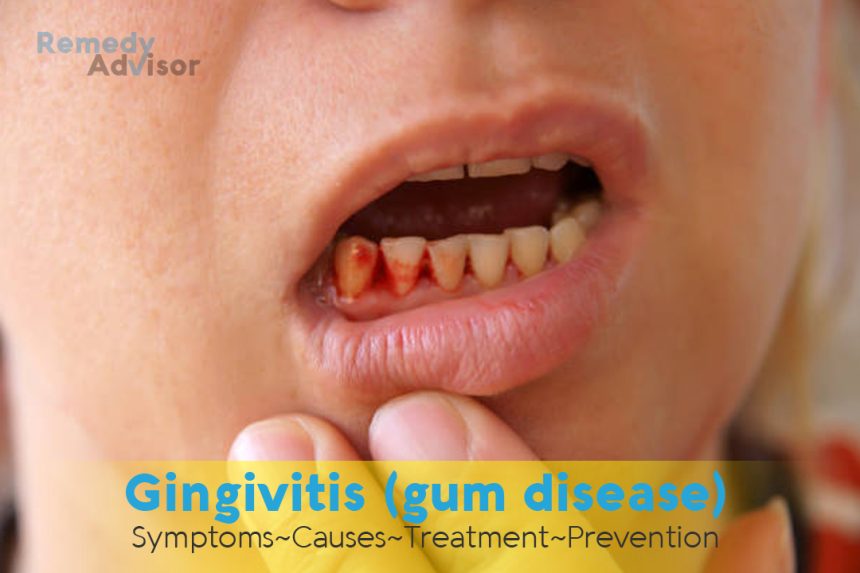What is it
Gingivitis is the medical name for gum (gingiva) inflammation. The ailment is usually caused by an acid generated by bacteria in the mouth. These bacteria live in a thin, sticky film, known as plaque, that coats the surfaces of teeth and the tongue, and they act mainly on certain carbohydrates in foods. Plaque eventually hardens into tartar, a hard mineral shell that forms around the gum line and erodes healthy gum tissue.
If you ignore proper dental care, gingivitis can quickly lead to a more serious dental problem called periodontitis (or pyorrhea, as it is also called). Periodontal disease isn’t painful in itself, but it is the leading cause of tooth loss in adults. In advanced periodontal disease, gums recede and pockets form under the gum line, where bacteria move in and erode the supporting bone that anchors the teeth. Gingivitis is the earliest stage of periodontal disease, and the only one that can be halted and even reversed with proper dental care.
Symptoms
- Gum swelling, tenderness, and redness. Gums may bleed easily during brushing.
- Chronic bad breath or a bad taste.
What causes it
About one-third of the population is thought to have a genetic susceptibility to gum disease, and there is now a test available to detect this. But even if your test is negative, you can still develop gum disease and still need to take the same care of your teeth. A number of lifestyle factors also promote gingivitis. The most common one is improper or poor oral hygiene. A poor diet, especially a diet high in sugar, is a factor, as is smoking, since the chemicals in tobacco smoke have harmful effects on the gums and teeth.
Hormonal changes, particularly in women, can adversely affect the gums. Oral contraceptives may increase susceptibility to gum disease, and women may also find themselves more prone to gingivitis during puberty, pregnancy, menstruation, and menopause.
Because saliva helps carry away sugars as well as bacterial pollutants, whatever that declines saliva production which comprises particular medicines can make gum disease inferior.
AIDS, Diabetes and other enduring diseases decreases battle to infection and can play a role; the frequently ill need to be mostly careful about dental care.
What if you do nothing
Though gingivitis affects only your gums, ignoring it may lead to more serious dental problems, including eventual tooth loss. If the condition worsens, you may develop chronic bad breath and more bleeding. With severe periodontal dis- ease, teeth may loosen, and you may notice gums pulling away from teeth.
Home remedies
Once you discover symptoms of gingivitis, you should consult your dentist to determine the cause and extent of gum disease. In addition to whatever treatment your dentist recommends, good oral hygiene is crucial in halting or reversing the problem. Here are the basic points of gum care.
Brush your teeth regularly
Using a soft nylon bristle toothbrush, brush at least twice daily. You can use a circular brushing motion or a straight, downward one. But to focus on the gum line, a back-and-forth scrub may be needed. Brushing teeth too vigorously may lead to an erosion of the gums and eventual sensitive teeth,
Brush your tongue
It collects the same amount of bacteria that stick to your teeth.
Floss teeth and gums
Each time you brush your teeth, be sure to floss afterward. Using a gentle sawing motion, ease the floss between the teeth, forming a crescent against one side of a tooth. Use your thumbs and index fingers to stabilize the floss. Lightly scrape up and down the tooth, from just under the gum line to the chewing surface.
Consider home dental devices
Consult your dentist about an ultrasound toothbrush, a plaque removal device such as Interplak or Sonicare, or an irrigation device such as Water Pik.
Prevention
Good oral hygiene most importantly, daily brushing and flossing is the best way to protect against gingivitis. In addition, be sure to have regular dental checkups.







